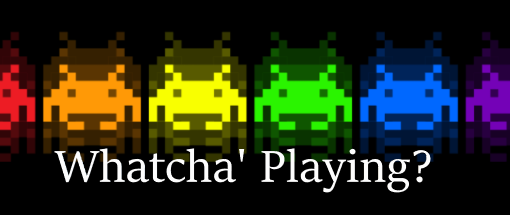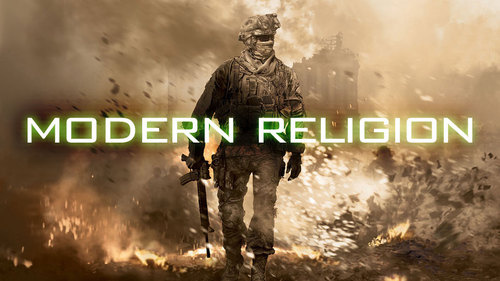So, I wanna get a bit more serious than usual for a second here. There have been a number of posts about games and education floating around in my head and in various states of completion digitally for a while now. Perhaps it’s time they come to light. Rather than calling this a brain dump I’d like to think of this more as idea jazz. Separately these ideas may seem discordant, but together the music emerges. The ideas (hopefully) make sense and do some kind of good.
Idea 1: Why do I do what I do? Why do I play games when I could be doing something else? How can I justify playing games as research?
Most of these questions I have answered before either in other posts or a podcast so how about I just answer the question about why I play so many games and how can I justify it. I play games because it is research. I need to see how different games in different genres achieve certain goals and the only way to actually do that is to actually play games. I have done research in computers and writing for about two decades and no one has ever questioned whether or not a Computers and Writing scholar needs to use a computer (though there has been a history of arguments about whether or not we need to be able to write code), but folks still have the audacity to wonder whether or not a person working with games needs to be current in their own game playing. Look, I am not trying to justify my game playing (most of it takes place well after I put in 40+ hours a week of traditional work) or my hardware/software expenditure. I am just stating some very real facts here. It’s just not possible to work with games or elements of games (I won’t say the dirty g_fication word) if you don’t know what is currently going on in games. If you haven’t played a game in 10, 5, or hell even 1 year you are so behind the times that you may as well not have ever played one! Ok, so that may be a bit of an exaggeration, but only a bit.
Even if you have no aspirations of teaching with games, writing with/for/about games, or developing games, but you still want to talk about engagement and game mechanics, game design and curriculum development, or even play and education you need to be playing digital games. In the age where 91% of children between the ages of 2 and 17 are playing video games how is it possible that we can deny that it is necessary to play games in order to understand what engages them and how we can better reach them. Every good English teacher I know reads the literature of the age group that they teach because they want to be able to understand what engages them and have some common ground. I haven’t taught in the public school system for more than 15 years but I still read YA lit. Admittedly not as much as I once did, but I still read the chart toppers. But I digress…I find that people who don’t play games, don’t see the value (entertainment or otherwise) in games, and have no marked interest in games usually do a really lousy job of building curricula or online/digital spaces that focus on the engagement features that games do well. I’ve lost count of the number of web portal or software packages I’ve been asked to review, demo, or consider for use in our writing program that have clearly not had the benefit of a gamer. They more than usual feel like new skins on the old edutainment games and content driven software packages that we saw far too much of in the 1980s and 1990s.
I think that I am even more put off by this whole idea because of the book that I am currently reading, Infinite Reality by Jim Blascovich and Jeremy Bailenson, but you’ll hear more about that on the next episode of the podcast. I’ve got to leave you wanting for more somehow, right?
Idea 2: Could a humanities based educational project ever get funded? Can people ever understand that those of us in the humanities “do” technology and can do it well?
Robert Torres from the Gates Foundation gave a TEDx talk a couple of weeks ago and talked about the need to improve retention in inner city schools and engagement (through games). What is even more surprising is that one of the games that he shows as being an exemplar was a language arts research based game for middle school aged children. Have we finally come to point that we recognize that while the STEM disciplines are important the language arts are just as important because without them it is impossible to share or work through the problems and discoveries of said disciplines.
While this is one project that got funded by the Gates Foundation (and there have been others like the one in Purdue’s Writing Lab), it is very rare that we in the humanities get this kind of fiscal support from our academic institutions. Much of the time we find ourselves doing much of our work uncompensated (and unappreciated) by our home institutions until we can do something that brings positive attention to the university. And yet, we still do it. We do it for the same reason that we get graduate degrees in English…we (at least most of us) do it for the love of education and what it is that we study. To use a cliche, we do what we do…For the love of the game!





3 thoughts on “On Engagement, Education, and Games Research”
Amazingly (given that this is 2011 and so what about to say has been said again and again) your post here is a response to nostalgia. And I mean nostalgia in the worst possible sense, which also means I’m pretending to believe there might be a decent understanding of the term.
The same Humanities folks that proclaim a progressive politics are often just as nostalgic as those particular politicians who stand in the way of that progression. That is, they both want things to be the way they used to be because, well you know, change is hard. And change certainly is hard. But there was never a pure humanities removed from technology and change, and there was never the pure, simple political life of the constantly imagined 1950s. Both of these ideals capture the way we never were.
Resisting the study of games seems as nostalgic to me as resisting the study of the frickin’ printing press. We (and do mean that pronoun; I can be nostalgic too) need to get over our humanist selves already because the Humanities are bigger and far more fun than our boring and time-honored nostalgia.
You realize that we’re all just jealous that we didn’t choose gaming as our research areas.
Seriously though I appreciate your posting the thoughts behind what you’re doing. It’s not that I question why you play games, of course. That’s completely obvious to me. However, I keep thinking I need to do some similar posts that explain some of my choices and why I focus on the things I do. I like your q&a model and the nice explanations. Maybe I should start asking myself questions in Formspring so I at least have a list of what I need to answer 🙂
@Jeremy I think that you are pretty much spot on and I think that it is equally difficult for those of us doing dh to understand that the ground on which we stand is also constantly shifting. I have seen all of the “new” media stuff that I was doing over the last 20 years quickly become old. I keep wondering at what point will I become to old, tired, busy, or nostalgic to move past what I am currently doing to see value in something else. 20 years from now will I be the one nostalgic for games and education?
@Traci It’s never too late to jump on the bandwagon. It is going to take some dedicated research and a few RSIs, but you can definitely do it! 🙂
Occassionally I do feel compelled to do these posts because someone has either “poo-poo’ed” my research or because people fail to understand that while I write and talk a lot about “play” and “fun” that there is a lot of thought, theory, and work that goes into the work that I produce (here and in more traditional academic venues). I cringe when people write or talk about games and game mechanics from a totally observational point. I think that it is dismissive and disrespectful of the work that we do. (On the other hand I have much respect for folks who have wathced ohter folks play games and realize that there is a lot of work involved in what we do with games and that it is just not something that they can or want to do…and that’s fine, I don’t want to study what most other folks study with the same level of dedication and I’m not afraid to admit it).
It’s like it was back in the early 90s when folks giggled at the work that we did in the MOO. Wasn’t it just a chat room and a place for teachers to meet with students online? Didn’t we just waste too much time programming? I see all of the time that I spent working with the MOO as a precursor to the work that I do now and I also recognize that because I was passionate about the work that I did there I got some of the best work ever from my students in the MOO (and I am still a bit nostalgic). But for me the nostalgia that drives me forward rather than keeps me in place. I see what is possible and I want to push te envoelope, but I recognize the amount of hands on work that’s necessary to do this thing responsibly.
Alright, I’m taking my soapbox and moving along for now. ;-)a